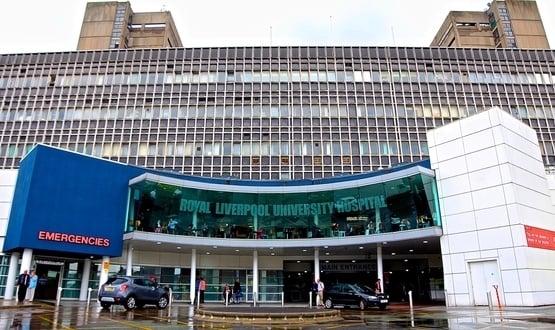Royal Liverpool taps Deontics AI smarts for heart attack treatment support
- 24 May 2018

Royal Liverpool and Broadgreen University Hospitals NHS Trust is to implement a cognitive computing-based decision support solution system to help improve the treatment of patients who have suffered a heart attack.
Starting in summer, the trust’s acute cardiac unit (ACU) will begin using software from UK firm Deontics to curate treatment plans for patients based on a database of evidence-based research.
As a result, ACU doctors can receive treatment recommendations tailored to the precise needs of an individual patient.
The platform draws from approved medical guidelines including the National Institute of Health and Care Excellence (NICE), research papers and up-to-date ‘good practice’ standards and correlates them with patients’ specific factors, to help doctors avoid prescribing medication that could increase risks of additional complications.
Mike Fisher, chief clinical information officer of Liverpool and Broadgreen University Hospitals, said: “Some of our most frail and elderly patients with acute coronary syndrome are getting some of our most powerful drugs.
“Using AI technology means we should reduce the potential for overprescribing such drugs for patients at lower levels of risk. Instead of giving some patients the maximum treatment, we can make sure patients are given the most appropriate treatment.”
According to Deontics, its platform uses cognitive computing to act as a “clinical sat-nav” for clinicians by enabling them to cater for the specific needs of patients, informed by relevant standards and guidelines.
It hinges on an argumentation framework that forms sophisticated linkages between the logic in guidelines and other validated data sources and individual patient data sets.
In addition to helping ensure doctors don’t prescribe medication that could risks of bleeding and repeat heart attacks, it’s hoped the solution can reduce the length of time patients are kept in hospital.
“There is much evidence to show that the most effective hospitals are those that follow guideline-based treatments more closely,” Fisher added.
More widespread adoption on the cards
The project is being treated as a potential jumping-off point for winder use of AI technology at Liverpool and Broadgreen University Hospitals NHS Trust, which is a global digital exemplar site.
Deontics’ technology is being implemented as part of the trust’s Digital Liverpool initiative, a four-part strategy announced in July 2017 that also includes the implementation of a region-wide electronic patient record (EPR).
The platform will initially be linked to the trust’s electronic notes system, with a view to later integrate it with other key clinical systems, including the forthcoming EPR.
Based on its success, Deontics could be used across the hospital to support “a range of high impact conditions”, including heart failure.
“We aim to start within something relatively simple, and then build up from there,” said Fisher said.
Prime Minister Theresa May this week called for the widespread adoption of AI technology to assist with the fight against cancer.




3 Comments
Any medical device needs ISO13485 certification to get a CE mark / FDA approval. This covers not just the software and hardware but also the organisation.
Otherwise, as the recent breast screening scandal has shown, software is not infallible. There needs to be assurance that the whole thing is safe.
Delivering guidelines, which is what this sounds like, is a worthwhile but low margin activity that the big EPR vendors build into their workflow, and because the guidelines are published, there is nothing to stop them nicking any good ideas you have, and they have the embedded systems that will (surprise!) not play nicely with your innovation. Will be interesting to see if this actually gets implemented.
Therefore unless there is a major barrier to entry or new defendable IP, guideline delivery is unfortunately not very exciting to investors, and is not really AI, it is just doing what we should be doing = process improvement.
David, I can offer some insight into this. In our experience of implementing Cambio’s EPR agnostic Clinical Decision Support (CDS) solutions across Sweden CE marking is a requirement and all our CDS apps are CE marked as medical devices as a matter of course. We are currently developing CDS apps with NHS Scotland as part of our National contract for CDS there (https://www.digitalhealth.net/2017/10/nhs-scotland-awards-cambio-cds-contract/) and are applying the same development approach whether the app drives increased compliance with stroke protocols or polypharmacy guidance.
When i hear about these type of projects, i’m always impressed by the potential they have to make a massive contribution to improving the current situation.
However, at the same time, i also hear that such solutions will likely require “medical device” status (even though they are essentially automating established guidelines and procedures) and that this can take years to navigate through the necessary legal process.
What is the likely status of this technology today ? Will it have been formally approved as a medical device before this pilot, or will this pilot likely serve as the basis for establishing its efficacy as a medical device ?
As someone who works in an startup (not in this area i should add), i’m genuinely interested in the approval process for AI tools and any light that people can shed on this would be much appreciated.
Comments are closed.